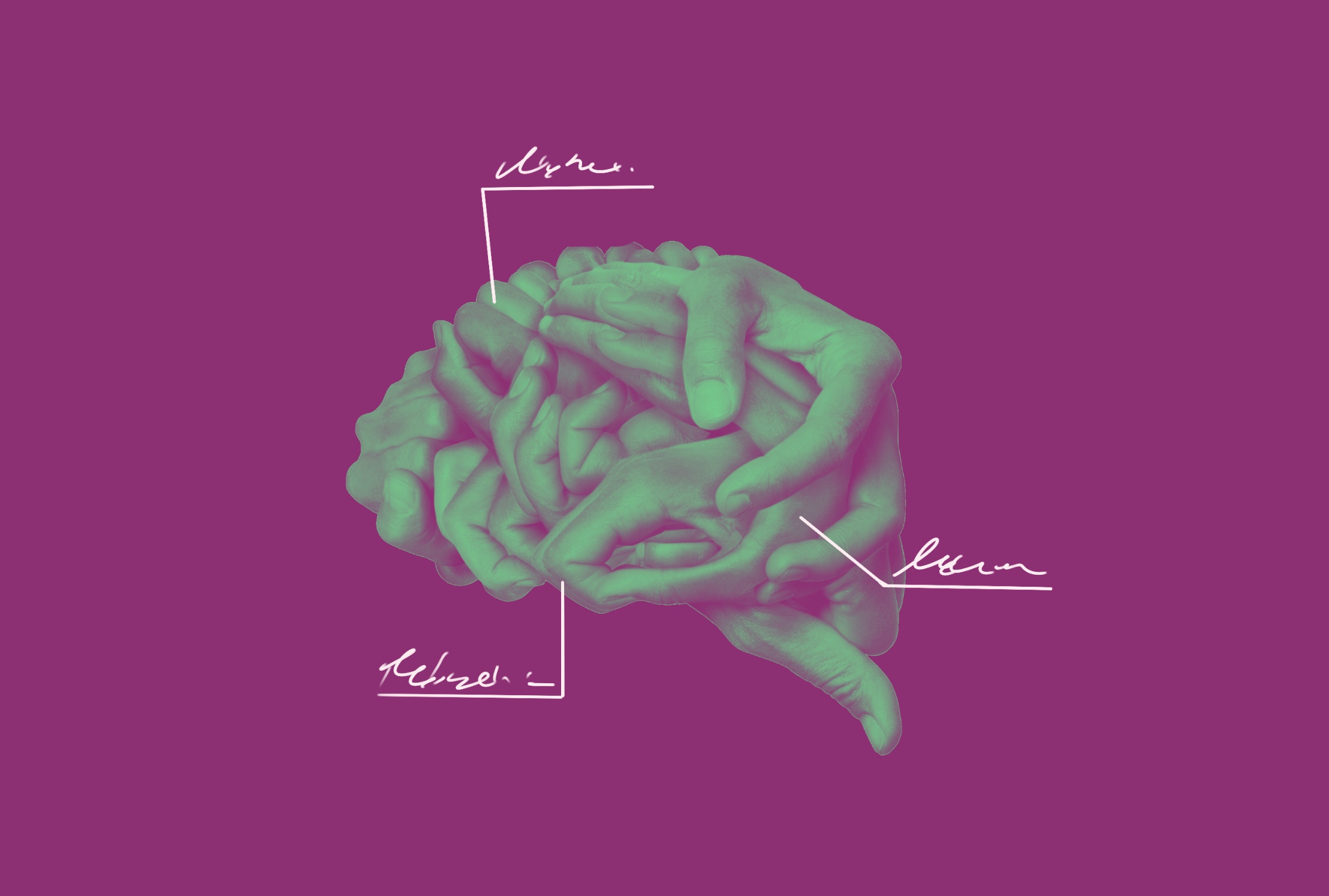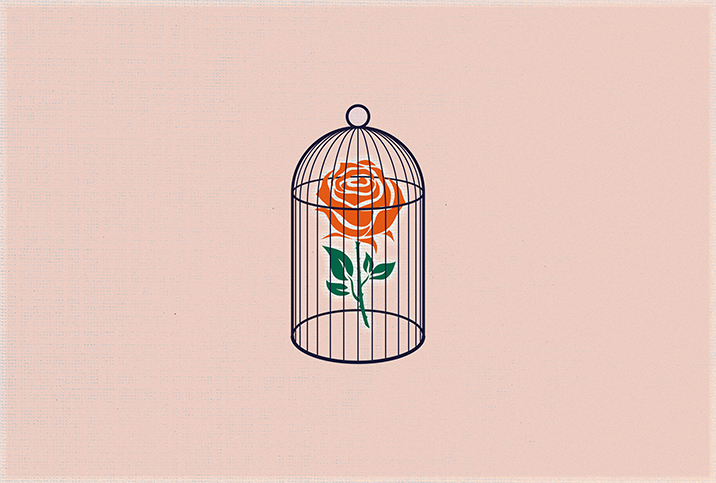The Mystery of How Your Brain Processes Sexual Touch

From the first long glance to the soft brush of a hand across a leg, the brain is wired to identify sexual cues and respond accordingly.
While there's much that scientists don't yet know about the intricacies of brain activity before, during and after sex, there is one abundantly clear conclusion: Sexual touch is unique and different from other forms of touch, and the brain's role in facilitating sex—from arousal to orgasm—is what keeps the love train rolling.
Sexual desire requires focus and attention
Maybe you've never actively thought about it before, but the instant a partner touches you in a soft, lingering way, your brain snaps to attention. You know, with the right steps taken, such soft touch could lead to other actions.
"Earlier stages of sexual arousal require that the brain identify some cue[s] as being sexual," said Nicole Prause, Ph.D., founder of Liberos, a sexual biotechnology company in Sacramento, California. When these cues are identified, the brain "increases focused attention and engages in effortful elaboration to escalate the excitement," she said.
This initial stage isn't really so different from the brain's reaction to other positive emotions or experiences. When the brain likes a given feeling, there's an automatic interest in keeping it going.
"One way to think of this is just like enhancing any positive emotion, as the same brain circuits are involved," Prause noted. "Mainly, the cingulo-opercular, sometimes called the salience network, is kicking into overdrive to direct attention."
Your brain intrinsically knows the difference between a stranger bumping into you on the street and someone brushing against you in a more suggestive manner in a bar. Context certainly plays a role, but the type of touch itself is also special.
"Sexual touch is very unique," Prause said. "All of our hairy skin has C-afferent fibers that are uniquely tuned to respond to moderately slow touch as erotic. Then, signals from the C-afferents are uniquely processed in areas of the brain active during socializing, as compared to merely mechanical sensory—the 'something is touching me'—areas of the motor cortex."
So your body and brain are intrinsically designed to identify touch as sexual or neutral and respond accordingly.
Keep the good times rolling
Once your brain has identified a sexual signal or touch and decided that it's worth pursuing, it's only natural for touch to escalate to foreplay and then to sex as a way to grow those good feelings.
While the actions of sex are very different from other pleasurable activities—such as playing sports, listening to music or eating a gourmet meal—the brain's responses are similar to some degree. They identify that an activity is pleasurable and they turn on the "pleasure-seeking-and-enjoying" hormones to encourage the activity.
"The functional neuroanatomy of sex is very similar to that of other pleasures and…it is unlikely that there is anything special about the brain mechanisms and networks underlying sex," according to a 2012 study published in Progress in Neurobiology.
It's important to understand it's not a single part of the brain that lights up to say, "Sex, now, good," as many areas of the brain are involved in sexual desire and arousal.
In a 2012 study published in Neuroscience & Biobehavioral Reviews, researchers identified eight regions of cortical activation and seven regions of subcortical activation involved in sexual arousal for heterosexual and gay men. The authors surmised that this multiple regional brain response helps "account for the varied facets of the subjective experience of sexual arousal."
Hormones are heavily involved
The hypothalamus is a busy part of the brain. It controls the autonomic nervous system and pituitary gland, body temperature, hunger and thirst, as well as sleep and emotional activity. During sex, it goes to work to stimulate the production of a wide variety of hormones responsible for different reactions in the body:
- Testosterone, which plays a role in physical arousal.
- Dopamine, a pleasure hormone that boosts sexual enjoyment.
- Nitric oxide, which stimulates blood flow and makes your sexual organs more sensitive.
- Epinephrine, which kicks off adrenaline to tense your muscles.
Each of these hormones, along with others, is responsible for the physical and emotional responses you engage in during sex.
"Some people get worried about a 'dopamine flood' for some reason with sex," Prause noted. "First, dopamine appears to change with sexual arousal more than the climax, so there is no reason to avoid climax. Second, the process is endogenous and self-limiting. I promise you cannot 'blow out' your dopamine receptors—which I have seen some consider a concern—from having sex."
Orgasm, the afterglow and the unknown
While many of the brain's responses during the desire and arousal phases are fairly well known, the orgasm itself remains mysterious.
"We still do not know what triggers an orgasm to occur, but there does appear to be a unique state in the last moments/minutes leading up to a climax," Prause said. "Our pilot data suggest that the brain needs to reduce cognitive control and effortful focus to permit orgasm. This unique state is likely why some people struggle with a climax but not sex drive and vice versa. They appear to be separable states. We are still actively working to understand this."
Just as this state of orgasm stimulation and experience is greatly unknown, so are the brain processes activated during orgasm.
"No one knows what parts of the brain are activated during orgasm because, one, there is a ton of movement that is not well-tolerated by our neuroscience measures, and two, we need multiple samples of any trial to average across for reliable estimates," Prause said. "Two fMRI [functional magnetic resonance imaging] labs have speculated on what they believe happens: One guessed gross activation, and the other gross deactivation. The jury is still out, but my money is on deactivation."
In other words, the brain either goes into overdrive across the board or shuts down momentarily. Only time and research will be able to discern a definitive answer.
Likewise, while we know feel-good hormones like oxytocin are released after orgasm, Prause said no one has tried to research the specific brain activity that takes place during the afterglow.
What we do know so far about the brain and sex is that the field of research is still young and untested. Paradoxically, as new studies provide greater information on the subject, they concurrently trigger more questions.
It's clear sex is a pleasurable activity most humans are biologically driven to pursue. However, the brain activity that takes place in the pursuit of and engagement in sex is fairly generic and similar to the activity that occurs during all other pleasurable events. Expect to hear more from researchers in the coming years.


















